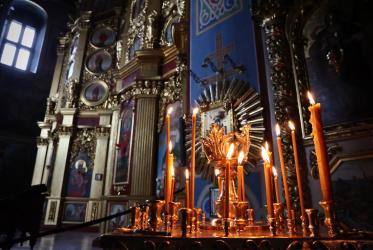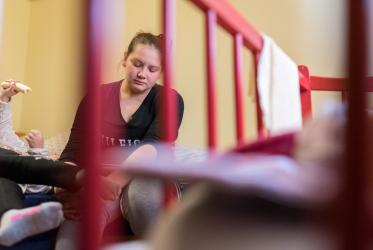Displaying 1 - 14 of 14
08 September 2022
A tribute to Metropolitan Kallistos (Ware) of Diokleia
24 August 2022
Scottish and UK religious leaders call for urgent climate action
20 September 2021
Churches should use their voice on climate change
26 February 2020
Fr Alexi - a peacemaker in Syria
21 December 2018
G7 must address famine
22 May 2017
WCC member churches pursue climate justice
01 April 2015
Christians around the world pray for unity
22 January 2015
Time to pray for God’s creation
02 September 2013








